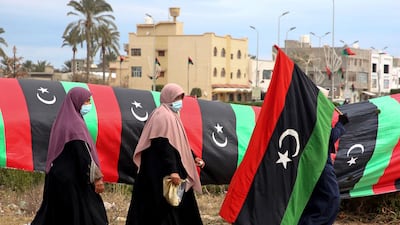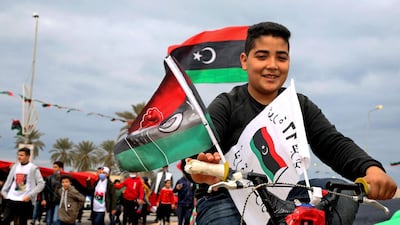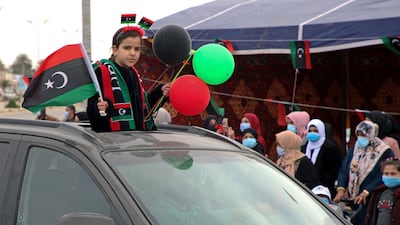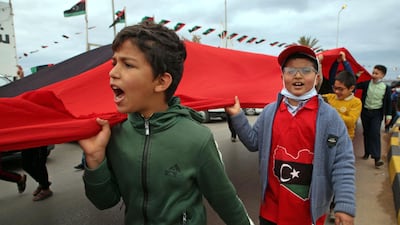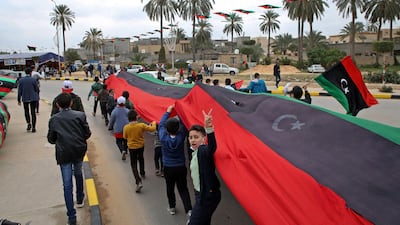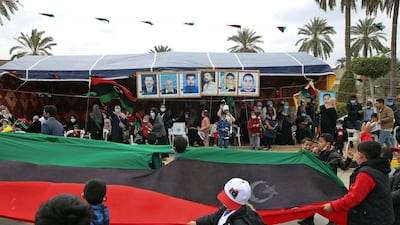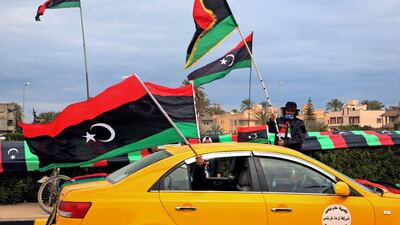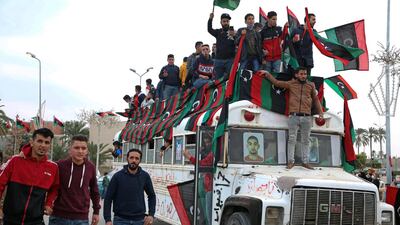European powers and the US have welcomed an agreement by rival Libyan factions that could lead to the withdrawal of foreign forces from the North African country.
France, Germany, Italy, the UK and US said the deal signed by the Libyan officers in Geneva “can be key to restore the sovereignty, independence, territorial integrity and national unity of Libya”.
The removal of foreign fighters and mercenaries was a crucial part of the October 2020 ceasefire that was agreed by the factions, but in the year since there has been little evidence to suggest anything has changed.
The United Nations Support Mission for Libya (Unsmil) said it hoped the “Action Plan” agreed by the 10 military officers, known as the 5+5 Joint Military Commission, would lay the path for credible elections that are due to take place in December.
“We applaud again the patriotism and commitment of the JMC members, encouraging them to seize this opportunity to further the full implementation of the Ceasefire Agreement,” said a joint statement by the US and the four European countries.
“The nationally-owned and led Action Plan they adopted in Geneva can be key to restore the sovereignty, independence, territorial integrity and national unity of Libya.”
According to Unsmil, “the JMC is developing an implementation mechanism that calls for the gradual, balanced, and sequenced departure of all mercenaries, foreign fighters, and foreign forces.
“The intent is to consult this plan with the concerned international partners, including Libyan neighbours, and seek their support and co-operation.”
Divisions in Libya came to a head in early 2019, when forces allied to eastern-based commander Khalifa Haftar — who received from help from a range of international supporters including Russian mercenaries — marched on the capital Tripoli.
A loose alliance of armed groups in western Libya, who received vital help from Turkey, managed to defend the capital. UN-sponsored peace talks brought about a ceasefire last October and installed an interim government that is expected to lead the country into the December elections.
The deal agreed in Geneva called for the deployment of UN observers to monitor the ceasefire before the implementation of the withdrawal plan.
In their statement, the US and the four European countries highlighted “the need for the disarmament, demobilisation and reintegration of armed groups and all relevant non-state armed actors, for security sector reform and the establishment of an inclusive, accountable, civilian-led security architecture for Libya as a whole”.
Since the announcement of the interim government earlier this year, little progress has been made on integrating and uniting the array of Libyan armed groups that have sprung up since the 2011 revolution that ousted Muammar Qaddafi.
Those divisions rose to the fore again at the weekend when eastern-based civilian leaders criticised interim Prime Minister Abdul Hamid Dbeibeh, accusing of him of failing in his role.
They specifically hit out at his failure to unify Libya’s divided institutions and described Mr Dbeibeh, a businessman from the western city of Misrata, as a dictator.
In response, Unsmil urged Libyan parties to “engage in direct and constructive dialogue to resolve all arising concerns”, and to “avoid an escalation and refrain from any action that could threaten the unity of the country”.
